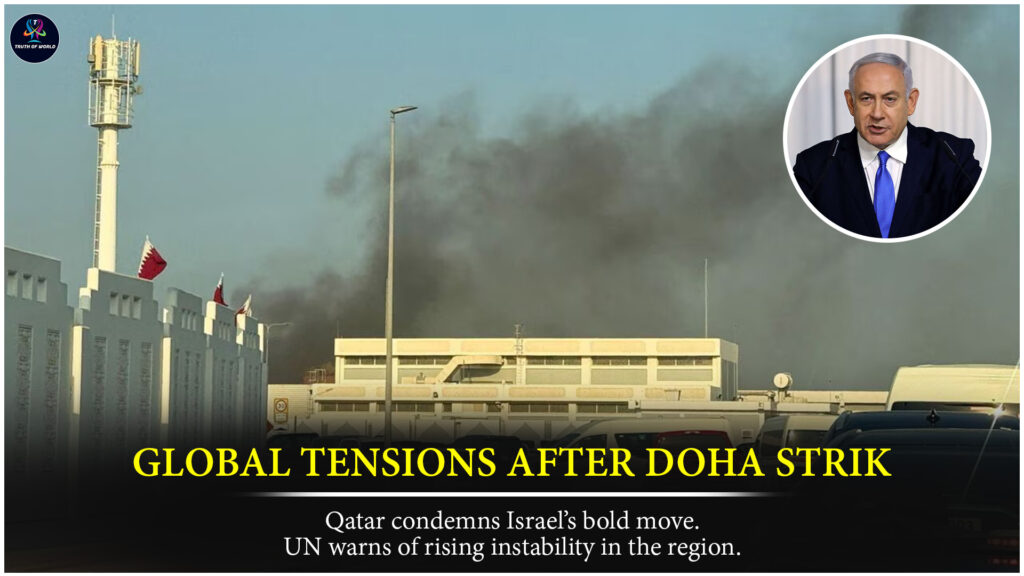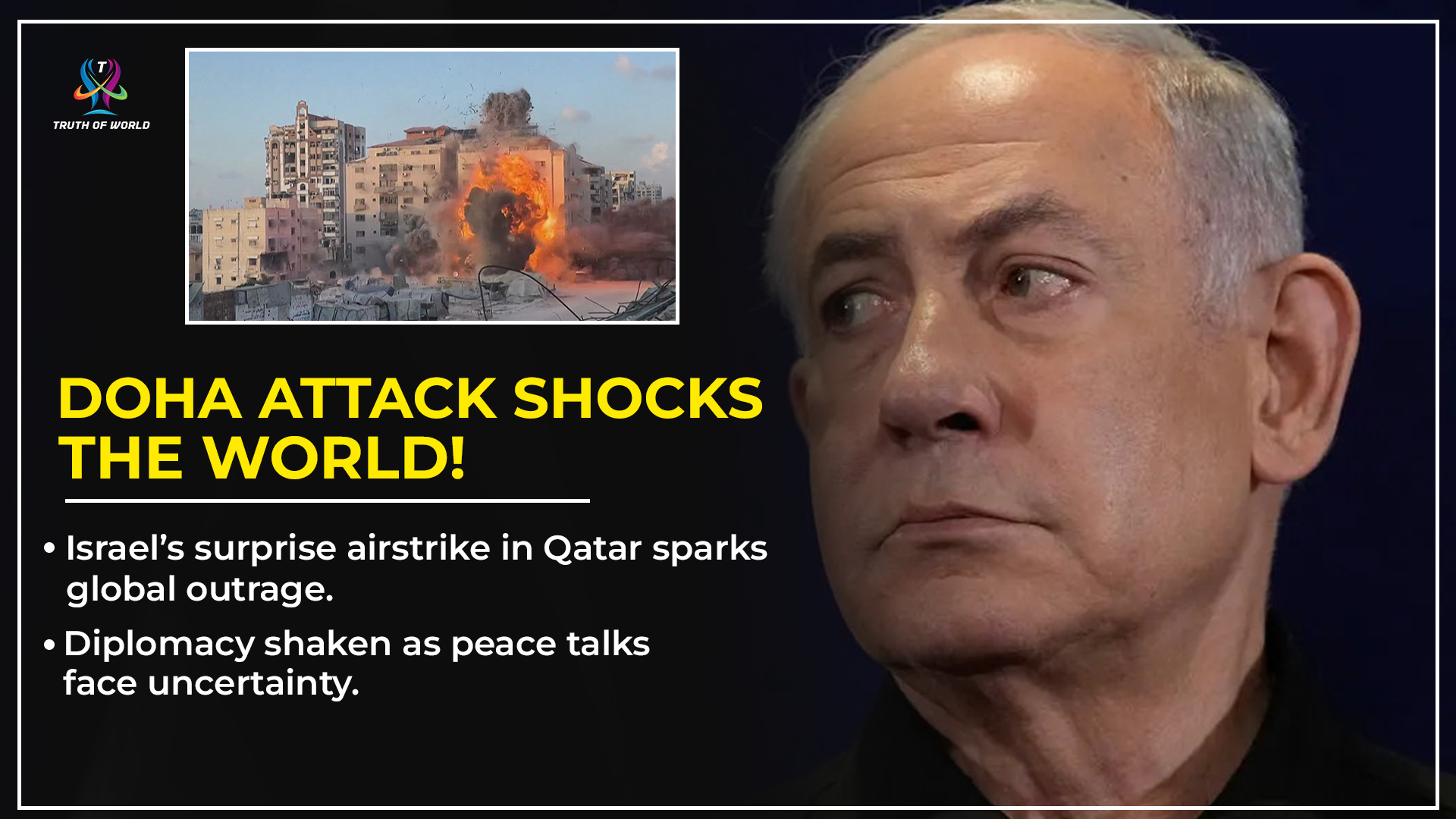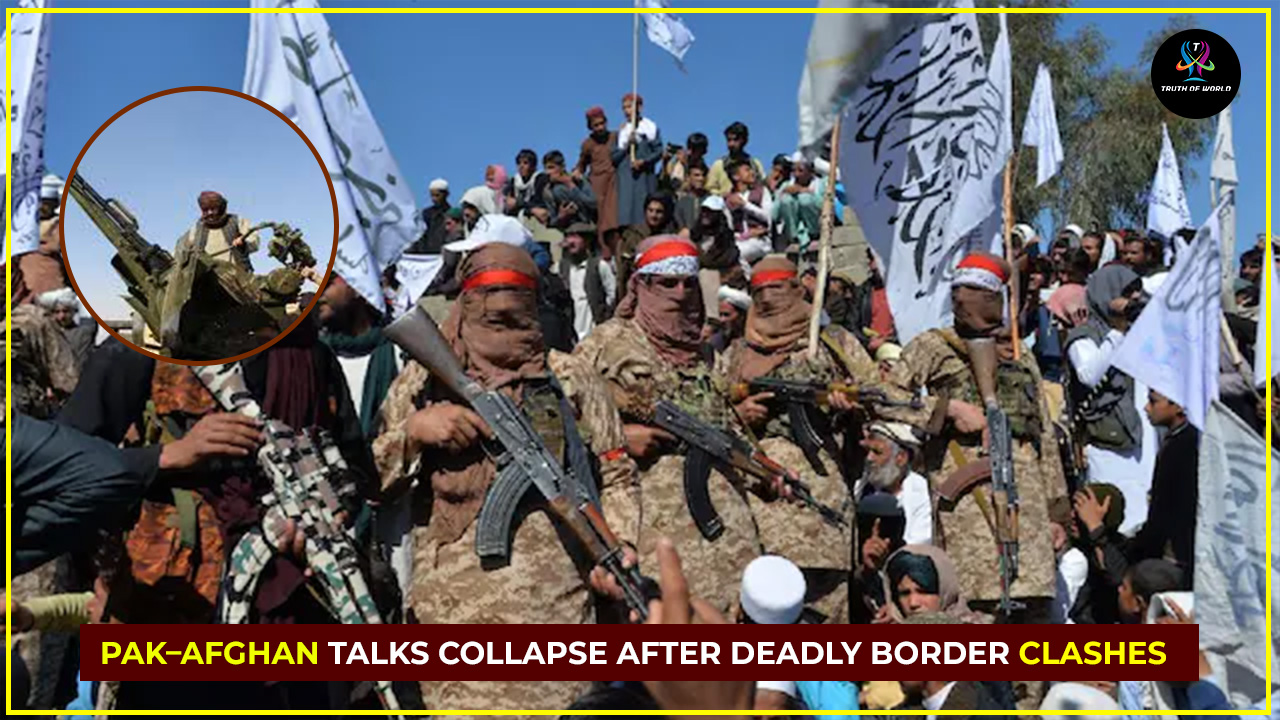Introduction
On September 9, 2025, the world witnessed a shocking development in international politics when Israel launched an airstrike in Doha, Qatar, targeting senior Hamas leaders. The incident not only killed several Hamas officials but also claimed the life of a Qatari security officer, sparking global outrage and serious diplomatic tensions.
This event is being described as “one of the most daring cross-border operations” in recent history, raising questions about sovereignty, international law, and the fragile peace processes in the Middle East.
In this article, we’ll cover:
- The full timeline of the Doha airstrike
- Israel’s justification and Hamas’ response
- Global reactions from Qatar, UN, India, US, EU, and other countries
- Geopolitical and humanitarian implications
- Expert opinions, analysis, and possible future outcomes
Background – Israel, Hamas, and Regional Tensions
To understand why this strike happened, we need to look at the long-standing conflict between Israel and Hamas.
- Hamas is a Palestinian militant group that controls the Gaza Strip. It has been in conflict with Israel for decades, with numerous wars, rocket attacks, and retaliatory strikes.
- Israel views Hamas as a direct security threat due to its military operations and alliances with countries like Iran.
- Qatar, on the other hand, has often acted as a mediator in Middle East conflicts while also hosting Hamas leaders in exile.
This triangle of diplomacy and conflict made the Doha strike not just a military act but a major diplomatic shock.
What Exactly Happened in Doha?
According to multiple reports:
- On the night of September 9, 2025, Israeli fighter jets carried out precision strikes on a building in Doha’s diplomatic quarter.
- The target was believed to be senior Hamas leaders who were meeting in Qatar.
- Hamas later confirmed that while its top leadership survived, five lower-ranking members and one Qatari security officer were killed.
- The strike was carried out without prior permission from Qatar, sparking massive criticism.
- The White House confirmed that the US was informed shortly before the operation but emphasized it was not directly involved.
This incident is unprecedented because Doha has always been considered a safe diplomatic hub in the Middle East.
Global Reactions
The airstrike triggered a wave of international responses:
🇶🇦 Qatar’s Reaction
Qatar strongly condemned the attack, calling it a “blatant violation of sovereignty” and international law. The Qatari government also demanded an urgent meeting with the UN Security Council.
🇺🇳 United Nations
The UN expressed serious concern, warning that such actions could undermine global peace efforts and lead to an uncontrollable escalation in the region.
🇮🇳 India
India, maintaining its balanced diplomatic stance, issued a statement expressing deep concern and urged both sides to exercise restraint for the sake of peace and stability.
🇺🇸 United States
The US clarified that it was not involved in the strike, but it reiterated its support for Israel’s right to defend itself. At the same time, it called for avoiding escalation.
🇪🇺 European Union
The EU condemned the strike and emphasized the importance of respecting sovereignty and international law.
🇹🇷 Turkey and 🇮🇷 Iran
Both countries strongly criticized Israel’s action, calling it an act of aggression.

Geopolitical Implications
The Doha airstrike has far-reaching consequences:
- Diplomatic Strain Between Israel and Qatar
Qatar has historically played a mediator’s role. This strike could permanently damage its diplomatic neutrality. - Impact on Peace Negotiations
Ongoing ceasefire talks and peace initiatives may now face setbacks. - Middle East Polarization
Regional powers may become further divided, with some backing Israel and others standing with Hamas. - International Law Questions
Experts are debating whether Israel’s strike in Qatar was a violation of international law.
Impact on Common People
Beyond politics, the strike has psychological and humanitarian effects:
- Citizens of Qatar are shocked that their capital, usually seen as safe, became a warzone target.
- Palestinians fear further escalations in Gaza and West Bank.
- The global Muslim community sees this as another chapter of Middle Eastern instability.
Expert Opinions and Analysis
- Military Experts: Some argue Israel had precise intelligence and felt the need to eliminate Hamas operatives before they could launch further operations.
- Diplomats: They believe this move was too risky and has damaged Israel’s global reputation.
- Peace Advocates: They warn this could derail years of peace negotiations.
Connection with Past Events
This is not the first time Israel has carried out targeted operations outside its borders.
- Similar strikes have been reported in Syria, Lebanon, and Iran.
- But striking inside Qatar, a US ally and international mediator, is a rare and bold step.
Future Scenarios – What Could Happen Next?
- More Diplomatic Pressure on Israel – UN may push for sanctions or resolutions.
- Strengthening of Hamas’ Global Support – Sympathy for Hamas may increase in some regions.
- Possible Retaliation – There are fears of Hamas or its allies responding violently.
- Peace Talks Collapse – If mediation channels close, violence could escalate.
Q1: Why did Israel strike Doha, Qatar?
Israel claims it targeted Hamas leaders who were planning hostile operations against Israel.
Q2: Did Hamas leaders survive the attack?
Yes, top Hamas leaders survived, but several lower-ranking members were killed.
Q3: Was the United States involved in the strike?
The US confirmed it was notified before the strike but did not participate.
The Israel-Hamas conflict has already claimed thousands of lives and destabilized the Middle East for decades. The Doha airstrike is not just another military operation; it’s a diplomatic earthquake that could reshape alliances, peace talks, and regional security.
At a time when the world is struggling with wars, economic crises, and humanitarian disasters, this incident highlights the urgent need for dialogue over destruction, diplomacy over violence, and peace over politics.
If leaders fail to act responsibly, ordinary people will continue to pay the price. The international community now faces a critical question: Will it let conflicts spiral, or finally work together for lasting peace?




